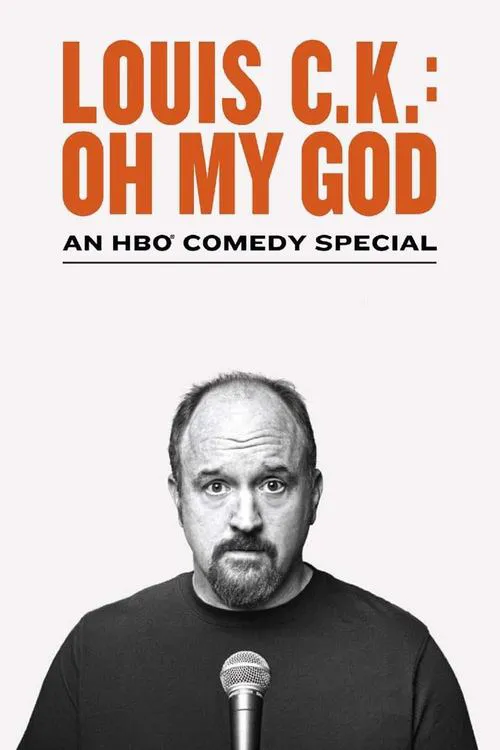Louis C.K.: Oh My God

Plot
Louis C.K. stepped up to the microphone, his eyes scanning the crowd as he began to weave his signature blend of clever observation, biting satire, and self-deprecation. The audience, seated around him in a circle, was instantly drawn in by his irreverent humor, which cut through the veneer of polite social norms like a hot knife through butter. One of the first topics to catch his attention was the concept of the food chain. Louis C.K. posited that the hierarchy of the natural world was a bit askew, with cats reigning supreme while humans were relegated to the lower rungs. He pointed out that cats are essentially parasites, content to lounge in the warmth of human affection while simultaneously making it clear that they are the ones in control. This dynamic, Louis C.K. suggested, was a perfect reflection of human relationships in general – with the cat serving as a proxy for the way people often treat one another. As the set continued, Louis C.K. turned his attention to animals, which he viewed with a mix of fascination and disdain. He noted that dogs are essentially just happy to be alive, unencumbered by the burdens of human consciousness. This, Louis C.K. suggested, was a major reason why dogs are so popular – they embody the carefree innocence of childhood, unmarred by the complexities and disappointments of adult life. But while dogs may be happy to simply exist, animals in general are often viewed as nothing more than commodities. Louis C.K. observed that the way we treat animals in the wild is a direct reflection of our own moral code – or lack thereof. He pointed out that we have no qualms about hunting and slaughtering animals for food, yet we get worked up into a frenzy over the mistreatment of animals in laboratory settings. This, Louis C.K. suggested, speaks to a fundamental brokenness in our values, where the lives of sentient beings are seen as nothing more than a means to an end. Divorce was another topic that came up during the set, with Louis C.K. offering his take on the way we treat one another in relationships. He noted that humans have a unique capacity for self-delusion, allowing us to convince ourselves that the problems in our relationships are someone else's fault. Louis C.K. suggested that this dynamic is a major contributor to the high rate of divorce in modern society, as couples struggle to confront their own flaws and shortcomings. One of the most memorable moments of the set came when Louis C.K. delved into the world of strange anecdotes. He shared a story about a friend who had a strange dream in which he was pursued by a pack of wolves – only to wake up and discover that he had actually been chased by a pack of wild dogs in his backyard. This, Louis C.K. suggested, was a perfect example of how our brains can sometimes blur the lines between reality and fantasy, leaving us wondering what is real and what is just a figment of our imagination. As the set drew to a close, Louis C.K. turned his attention to more serious topics, such as morality and mortality. He noted that, in an increasingly secular society, people are turning to more and more trivial pursuits in an effort to distract themselves from the crushing reality of their own mortality. Louis C.K. observed that this can lead to a kind of numbness, where people become desensitized to the world around them and lose touch with their own values and principles. But even in the face of mortality, Louis C.K. found room for humor. He shared a darkly humorous anecdote about a friend who had died of a sudden heart attack, only to be found by his wife with a look of profound disappointment on his face. This, Louis C.K. suggested, was a perfect illustration of the way we often view death as a kind of disappointment – a failure to meet the expectations we have for ourselves. Ultimately, the central theme of the set was the idea that we are all just fumbling around in the dark, trying to make sense of the world and our place in it. Louis C.K. offered no easy answers or solutions, but instead used his humor to shine a light on the absurdity and complexity of the human experience. It was a fitting conclusion to a set that was both biting and poignant, with Louis C.K. leaving the audience with a lot to think about long after the curtain had closed.
Reviews
Recommendations




